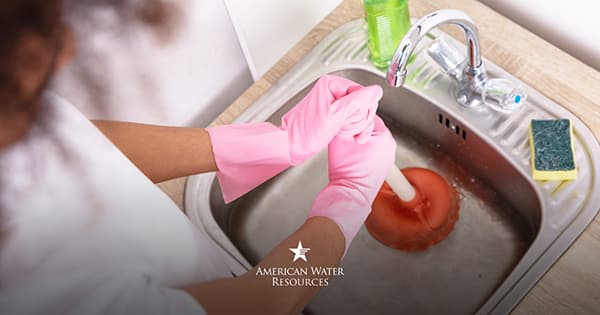Keep Your Home's Pipes Clog-Free!
As much as you may not want to think about your home's pipes, it’s important to understand a few key tips to help keep your plumbing clog-free. No clogs mean fewer or no expensive or unexpected repair bills from the plumber to worry about!

You probably don’t give much thought to your home’s pipes — until there’s a problem. And plumbing issues don’t tend to stay hidden for very long. Odds are likely that you’ll notice right away that something is wrong (e.g., sinks won’t drain, toilets won’t flush, water pressure is reduced, or water is leaking from a pipe).
As much as you may not want to think about your pipes, it’s important to understand a few key tips to help keep your plumbing clog-free. No clogs mean fewer or no expensive or unexpected repair bills from the plumber.
Tip #1: Don’t flush THIS down the toilet or put THAT down the sink!
Always be mindful of what you and your family are flushing or putting down the sink (this includes your garbage disposal). Many common household items could cause obstructions in your pipes — items you may not have previously been aware of.
Never flush the following:
- Cotton swabs
- Makeup remover wipes
- Wipes that are “flushable” (they really aren’t!)
- Diapers
- Feminine hygiene products
- Cigarettes
- Medications
- Floss
- Baby wipes
- Paper towels
And be sure to never put the following down your sink drains:
- Cooked pasta noodles
- Coffee grounds
- Fats/grease/butters
- Cake or cookie batter
- Cooking oils
- Eggshells
- Hair
- Medications
Also, it goes without saying that you should monitor little ones while using the bathroom or while washing their hands in the kitchen/bathroom sink. It’s not unheard of for a child to try and flush a toy down the toilet, or put something down the sink that doesn’t belong there! These situations could lead to serious plumbing issues that could prove costly to get taken care of.
Tip #2: Invest in drain covers
Your local home improvement or hardware store likely sells covers that can easily fit over your shower or bathtub drain. These are handy for preventing the unwanted build-up of hair inside your pipes. (We told you above to never put hair down your drains, but when you’re bathing or showering it can be difficult to avoid!) With a cover over the drain, water can still freely pass through, but hair will be collected. You can easily dispose of the hair in the trash when you’re finished.
Additionally, these covers can help prevent clogs in your lines caused by your soaps or bath bombs. Many soaps and skincare products have exfoliating beads in them that don’t always dissolve as expected once they go down the drain. A drain cover will help collect at least some of the material. Also, if you’re someone who enjoys using a shower or bath bomb while you’re relaxing and getting clean, a cover will help to collect any leftover debris — such as flower petals or tea leaves.
Tip #3: Have your pipes properly cleaned and maintained
If you’ve noticed a recurring problem with clogs in your home even though you’re being extra cautious about what goes down the drains, then it may be time to get your lines cleaned by a professional plumber.
It’s not uncommon for pipes with many years of grease and sediment buildup to experience frequent clogs, especially if you’re in an older home (older home usually means older pipes, right?). A trained and experienced plumber will be able to use a hydro jet system inside your pipes to blast high pressure water through to get rid of any excess buildup that could lead to clogs.
Bonus tip!
You should also have your water heater flushed at least once per year. Flushing your water heater helps it to operate as efficiently as possible, and it may even help to extend its usable life. As time passes, minerals from your water supply could build up inside the unit and lead to a water heater breakdown, which is always unwelcome. No water heater means no hot water for showers, baths, laundry, or washing dishes.